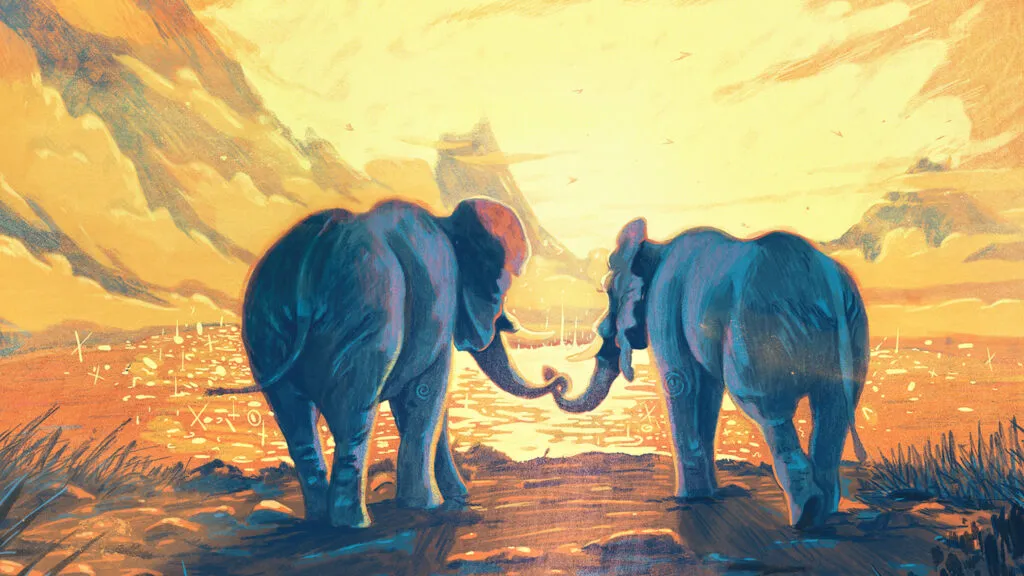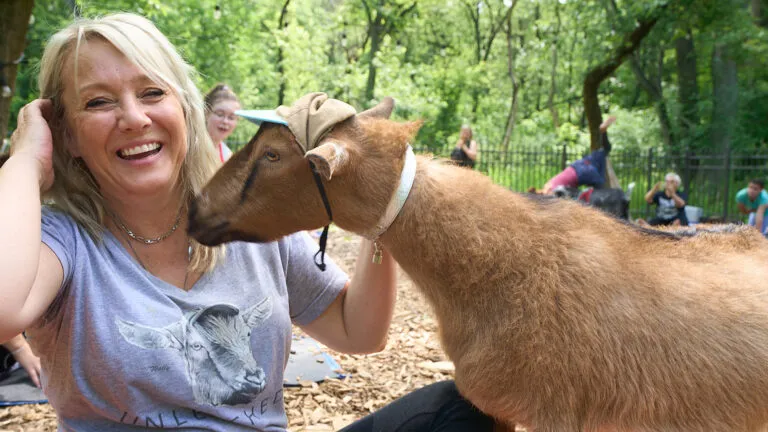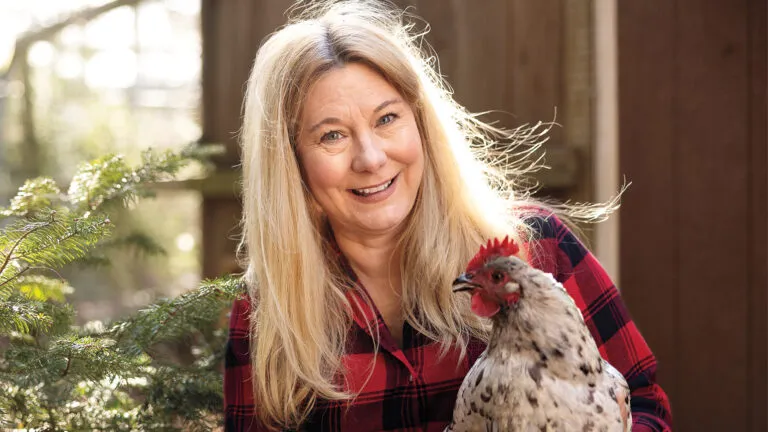Do animals grieve? The way we humans do? I’ve been asking myself this question ever since my husband, Adam, told me the story of how his parents’ dog, Sandy, behaved after the death of his grandfather a few years ago.
“We took Sandy to my Pop Pop’s house after the funeral,” Adam said. “She raced to his armchair and lay next to it. She stayed for hours. Somehow she knew. He was gone.”
But how? To find out, I decided to talk to experts and others who have witnessed animals mourning. Like Meva Scarff, a Mysterious Ways reader from West Virginia. Meva was stunned by the way the cows on her farm seemed to express their grief after the death of her husband, Jim, about a year ago.
Meva had Jim buried on top of a hill on their 110-acre farm. The cows would constantly graze over the spot, so Meva built a fence around the gravesite to keep them away. Again and again, they found ways to push through the fence, as if to be closer to Jim. Meva couldn’t believe it. “My husband loved those cows,” she said, “and I guess they loved him too.”
Of course, some skeptics argue that people anthropomorphize their pets, giving them human qualities and feelings. But these weren’t pets. They were cows. Could something deeper be going on?
I took my questions to Dr. Eric Dougherty. He’s the medical director of Cat Practice, a feline veterinary hospital in New York. According to Dr. Dougherty, animals do mourn—for both humans and members of their own species. Interestingly, their grief often mimics the behavior we typically associate with humans.
“Animals, while possessing a different—and in some cases, not fully understood—social structure, have deep emotional connections to one another beyond simple social hierarchy,” he says. “Many of the common signs of grief in cats, for example, consist of changes like becoming withdrawn, depressed, lethargic or even aggressive.” Dr. Dougherty recalls a client whose two cats formed a lifelong bond. Just 48 hours after one of them died, the other unexpectedly passed away. A comparable phenomenon—broken-heart syndrome—has been observed in humans following the death of a loved one.
“We cannot explain exactly what each cat experienced in that case,” Dr. Dougherty says. “But have no doubt, the surviving cat knew something important from her life was lost.”
Mysterious Ways Editorial Director Edward Grinnan saw something similar happen with Millie, his golden retriever. Millie was just a puppy when she met Winky, the dog of Mysterious Ways Senior Contributing Editor Amy Wong. The two quickly became inseparable. Winky helped Millie navigate the sidewalks of New York City. In turn, Millie protected Winky from a black bear on the Appalachian Trail. “The day Winky died, Millie was across town from Winky,” Edward told me. “At the very hour it happened, Millie let out a soft cry and a deep sigh. Somehow she knew her best friend had died.”
She knew. How? I turned to other species in the animal kingdom for clues, starting with elephants. Elephant graveyards may seem like something out of The Lion King, but elephants do indeed come together to mourn when they lose a member of their herd. Tony Verhulst, founder of the sanctuary Elephant Haven in France, talked about elephants he studied in Thailand. After one died, another lingered by the body for three days. “She needed to say goodbye,” Verhulst says. “She knows where they buried her, and she still goes back to the gravesite.”
Elephant mourning rituals can be downright eerie. Joyce Poole, an animal behaviorist and author of Coming of Age With Elephants: A Memoir, says, “Their silence is unsettling. The only sound is the slow blowing of air out of their trunks as they investigate their dead companion. It’s as if even the birds have stopped singing.”
Dolphins are another species known for their grieving rituals. Like elephants, dolphins often travel in groups. Mother dolphins will sometimes carry their dead young for days. The mourning isn’t restricted to mothers. According to the book How Animals Grieve, by anthropologist Barbara J. King, when scientists studied dolphins off the Canary Islands in 2001, they observed a mother dolphin carrying her baby’s carcass. One adult dolphin swam directly in front of her, another directly behind her. The same mother dolphin was later seen with other adults in her pod—some even helped her carry the body. For six days, they wouldn’t let her grieve alone.
Not that there’s a time limit to how long animals grieve. The mourning can last weeks, months, even longer. Take the famous story of Hidesaburō Ueno, a professor of agriculture at Japan’s Tokyo University in the 1920s. He had an Akita pup named Hachikō, whom he affectionately called Hachi. Hachi would walk him to the train every morning and greet him there at night.
In 1925, Ueno passed away at his office. The dog went to the train station every day for the next 10 years, patiently waiting for his owner and friend to return. People started calling him Chuken-Hachikō, or “the faithful dog Hachikō.” Today a statue stands in dedication to his loyalty and love at the Shibuya train station in Tokyo, lest we underestimate the rich emotional lives many animals have.
“Grief is born from love.” That’s what Barbara J. King writes in How Animals Grieve. Surely that’s true for all of God’s creatures.
Read more: Anthropologist Barbara J. King on Grief in the Animal Kingdom





